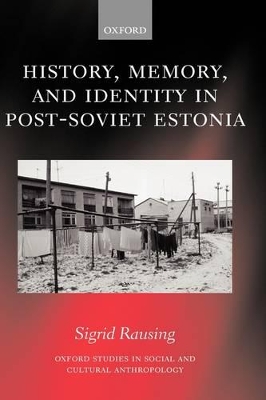Oxford Studies in Social and Cultural Anthropology
1 total work
Sigrid Rausing describes the changing world of the Estonian Swedes, and the way in which this minority identity was constructed in the various ideologies that have dominated the region since the early twentieth century. In particular she is concerned with the latest of these changes: the post-Soviet attempt to 'restore' Swedish cultural identity. Rausing touches on a wide range of issues, debates, and insights: the relationship between ideology and form, nationalist
and Soviet notions of ethnicity and traditional culture and historically-framed notions of an imagined normality. The ethnographic location for these discussions is a particular former collective farm, now subject to economic decline, the Estonian nation-building ideological project, and new
relationships of dependency with Sweden. One of the author's central arguments is that these changes reflect a conscious attempt to 'reform habitus' so as to match that of the local image of the West, but that the location of ethnic culture and many of the operative concepts still reflect the tropes of the Soviet era.
and Soviet notions of ethnicity and traditional culture and historically-framed notions of an imagined normality. The ethnographic location for these discussions is a particular former collective farm, now subject to economic decline, the Estonian nation-building ideological project, and new
relationships of dependency with Sweden. One of the author's central arguments is that these changes reflect a conscious attempt to 'reform habitus' so as to match that of the local image of the West, but that the location of ethnic culture and many of the operative concepts still reflect the tropes of the Soviet era.
